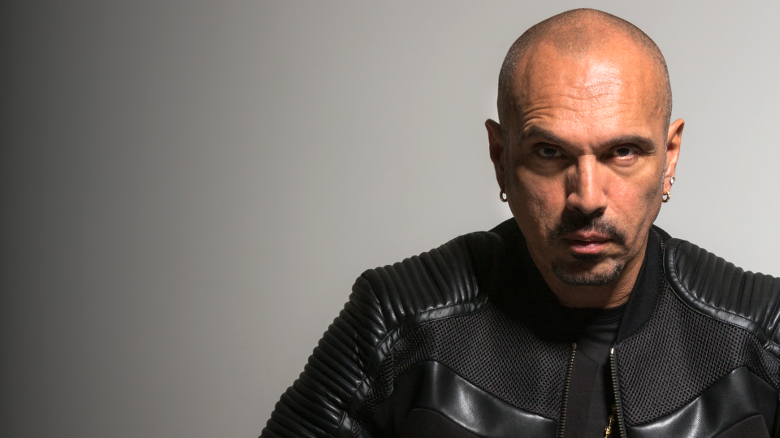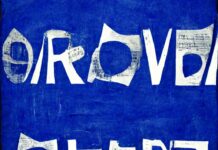That was the beginning of your international career?
I was just starting to do remixes and it was the first time that I played in the UK, during the DMC chanpionships. I was asked by Nicky Holloway and Pete Tong to be a guest DJ, they were playing and doing the Sin parties at the Astoria. I go there with my records, thinking I’m going to do a proper set. I warmed up for 55 minutes and then Pete Tong comes to me and goes „Thank you mate, that was great“, and I’m like „Listen, I don’t care about the money“, and he goes „This is how we do things here“ and I’m like „Uh-huh“ and all the people from New York that came there were like „What happened?“ and I was like „They told me that, 55 minutes, yeah they told me that that was it.“ Anyway, I was doing more remixes for the UK than America. All my remixes were coming via import. And I was playing at the Red Zone, 1989, and the Red Zone was like Studio 54 of that time. Everybody used to go there, it was all about being upfront. The new club kids. I came back from the UK with Soul II Soul „Keep On Movin“, that was major at the time. There was some of the great stuff, Snap’s „The Power“. I was the first one in New York to play „Pump Up The Jam!” We ended up remixing it for SBK Records, because it was just massive.
But were the other DJs in New York not touching it because it was European?
They didn’t go to the UK. They weren’t buying those records. I would come to the UK and buy records.
And you broke them in New York?
Yeah. Every other club was playing New York house or American house, nobody was touching the European stuff. You couldn’t get away with it. But because Red Zone was the chic place, or the most happening, it was acceptable. I was playing KLF’s „What Time Is Love“ and people were like „Yo, what the fuck is this record?!“, „What is this, what is this?“. I did „Dirty Cash“ by Stevie V, I had the import and in the UK they were never into artist development. They you used to put out a lot of records and just throw them up, throw them up. Some stuck, but they were just ready to go on and then move on to the next thing. „Dirty Cash“ was a big record for me at the Red Zone, and I went back to them and said „Let me remix the record“, and after remixing it an American label picked it up. And then also for the UK it became the number 2 pop record. So, the Red Zone for me was really like a combination of American and UK house.
Video: The KLF – What Time Is Love
What made the club so special that you kind of started developing that signature Red Zone mixes which were more like a darker style?
The dubs were the Red Zone mixes. The dub was really like a break of the 12“. So the break really was what became the dub. Mostly no vocals or some vocals, it was just the dark side. And the Red Zone was the only place that you were hearing that kind of music. And that’s how the Red Zone mixes became famous. Then afterwards I started mixing records for the American companies. I was also playing Reggae. Well, it wasn’t called Reggae, it was called Dancehall. And some Hip Hop. I was playing all of that stuff.
You did some mixes back then for Shabba Ranks or Carleen Davis.
And Shabba Ranks was a huge record. I mean, it sold millions! Anchor Records picked it up and said „Give me something that you would play.“ I changed the whole thing, I sampled Maxi Priest, they changed the name of the record. The original name of the record was „Champion Lover“. And because I made it „Mr. Loverman“, they changed it and made it „Mr. Loverman“. And of course Ce Ce Peniston was big record for me at that time. „I’ll Be Your Friend“ was a big Red Zone record, that was 1991.
Video: Ce Ce Peniston – Finally
How long was your stint playing at the Red Zone?
Three years.
But those were crucial years, right?
Yeah. You had the Red Zone and the only afterhours was the Sound Factory. Ok, you had Save The Robots and some small kind of cool things, but it was the Sound Factory. So people would go to the Red Zone because it was the early part and then from there they’d go to the Sound Factory, because it would be open until the afternoon. When I was playing, besides having records, I had levels of reel-to-reels because all that stuff wouldn’t be coming out until two or three months later. So Ce Ce Peniston’s „Finally“ or „Gypsy Woman“ by Crystal Waters, I was playing that shit three months before it even came out. But I was playing it all from reels. The record companies would come to people like me, Larry Levan and Junior Vasquez and Frankie Knuckles with reels hot of the press from the studio to break them. I remember when I first got „Gypsy Woman“. People were like „Wow, what is this record?“ And in those days, because it was not on the radio, it was not in the stores, that was the only time they heard those records. That’s how Larry had the power, Tony Humphries, Bruce Forest, because we’d play stuff that wasn’t available and people would come to the club and wait to hear those records that you couldn’t get. They waited and then „Whoa! There it goes! boom, boom, boom!“. So I started Fridays and Saturdays, I was a resident and then I stayed on. I was in the studio five days a week, a 100 hours. I used to sleep in the studio. It was my home.
When was the time you founded Def Mix?
It was 1987. Frankie Knuckles moved back from Chicago and he started playing at a club called The World. The World was before Red Zone.
But you knew him before?
No. I just knew of Frankie. But that’s when we started. Because he was starting to get mixes and the reason I came up with the name Def Mix was because at that time the slang in Hip Hop was Def, like Def Jam and so on. And Def was good. So because Shep Pettibone used to have „remixed by Shep Pettibone for Mastermix Productions“ we’d go „remixed by David Morales for Def Mix Productions“. So that’s how we started. We never intended it to be something.
Why did you decide to put it together, as a company? Just to organize it, all the requests?
No, because Judy was managing both me and Frankie but me and Judy just decided to create the company. Because there were so many requests coming for me and Frankie and we were like the Gamble & Huff at that time. We had a stable of musicians, I used to do all of the drum programming for Frankie’s. We used the same musicians, the same engineers, we worked at the same studio. That’s why we had the so-called Def Mix sound.
The discography of Def Mix Productions is just incredible. So, so many remixes. And you had the discography on your old website where there were quite a lot of unreleased remixes even. There probably was no remix team with such a high output for years.
Well, the other one was Masters At Work. But they came a little behind us, so we were the first ones in 87. And from everybody, Pet Shop Boys to Donna Summer, Aretha Franklin, Mariah Carey. And Mariah in 1993 was another big one for me. That was the first time that a singer came into studio to re-sing a record. That changed the whole idea of what remixing was. That was nothing like the original.
That was quite unheard of at that time.
And nobody heard Mariah Carey sing like that. They heard Mariah Carey the pop singer, but now they’d hear Mariah Carey wailing and giving it to the dancefloor.
So you basically asked her to come down to the studio to redo it?
They asked me to remix „Dreamlover“ and I’m like „I can’t flip this original. I can’t.“ I was saying this is the only way it can happen and I just threw it out there! I’d never produced a singer before. Nevermind, it’s Mariah Carey, the new queen on the block. I didn’t even think it would happen. I was like, okay, she will be singing and you’ll have to come up with a track. Okay. Alright. She was 21 years old at the time. And it was huge. It was bigger in the UK than it was in America. I mean in America it was people like Junior Vasquez at the Sound Factory, he was pumping that fucking thing for days. It was a whole another thing.
Video: Mariah Carey – Fantasy (Def Club Remix)
How did you divide the remix requests at Def Mix? Were the requests directed to both of you or individually?
Individually. Because Frankie had his own sound and I had the Red Zone bit. And Frankie had a scene and I had mine. People were telling Judy who they think should get it. We got requests individually. We did a lot of big names at the time. And I even turned down a lot of big names! I didn’t do it just to do it. I remember when the Rolling Stones, their company, were asking me to mix one of their records, I don’t know which one it was at the time, and they said „Can you send us a discography?“ And I’m like „Fuck, I do not send a discography. If you’re coming to me, you got to know what I’m doing, otherwise why do you even ask me?“ And then, as you move on, the Grammys were a big experience. Something I used to watch on TV. I went three times. But the first time I went, I was a producer with Mariah Carey, because I did „Fantasy“. The reproduction went on the album. At that time when it came to the Grammys, all the producers that worked on the album were with her at the Grammys. Dave Hall, some of the top R&B guys at that time. Anyway, Alanis Morissette had won the Grammy. For „Jagged Little Pill“. And I remember I’m in the middle row, maybe third row from the front, surrounded by all these people. I swear to god it happened like in five seconds. You hear the nominations, „And the Grammy goes to..“ and all I know was that we were not getting up. It was Alanis Morissette and I was like „Oh shit, no!“ and then the following year, or maybe a year later, they came up with the remix category. And of course me and Frankie were both nominated. And he got it that year. And then in the second year, I got it.





